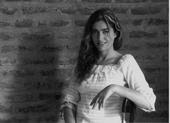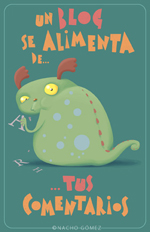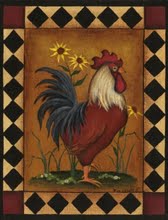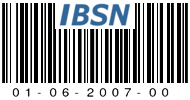Uploaded by TheYiddishtheater on Nov 17, 2011
רמה מסינגר יעל בר זוהר חני נחמיאס ומיכל ינאי במחרוזת שירי יידיש
A Yiddish medley by Rama Mesinger Yael Bar Zohar
Michal Yanay and Chany Nachmias in Israel
Uploaded by myzeidi on Mar 8, 2008
Download at: http://www.myzeidimusic.com/
musicstore.cfm
Android Market: https://market.android.com/
search?q=misha+marmar&c=music
Yiddish Song "Fiddler" by Misha Marmar
From the CD Album "Jewish Songs and More"
Uploaded by albertdiner on Dec 18, 2007
l)Abraham Tuschinski- empresario- impresario
2) Jews in The Netherlands 1940s Westerbork
3) Mazel- New York 1940
4) Leo Fuld
"Abraham Icek Tuschinski (Brzeziny (near Łódź), May 14, 1886 - Auschwitz, September 17, 1942) was a Dutch businessman of Jewish-Polish descent who built the Tuschinski Theater, a famed cinema in Amsterdam.
While emigrating to the United States in 1903 Tuschinski decided to remain in Rotterdam. He found success as a movie theatre owner, opening his first four cinemas in 1911: the Thalia, Cinema Royal, Scala and Olympia. His most luxurious cinema in Rotterdam, the Grand Theater, opened in 1928.
His crowning achievement, the Tuschinski Theater, opened its doors in Amsterdam on October 28, 1921. The unique design of this building was a mix of three modern styles: Amsterdamse School, Art Deco and Jugendstil. The elaborate exterior and opulent, richly decorated interior were restored to their former glory in 1998-2002. Tuschinksy also opened another famed Amsterdam cinema, the Roxy Theater, in 1928.
When World War II broke out, Tuschinski lost all his cinemas in Rotterdam when the city was bombed by the Germans on May 14, 1940. On July 1, 1942, he was transported to the Westerbork concentration camp in the northeast of the Netherlands, and from there to Auschwitz, where he was killed."
Source: Wikipedia
Lazarus 'Leo' Fuld (Rotterdam, October 29, 1912 -- Amsterdam, June 10, 1997) was a Dutch singer who specialised in Yiddish songs.
Leo Fuld was born as the third of ten children and grew up in a poor Jewish family. His father, Louis Fuld, was a merchant. Fuld's talent for singing showed at early age during services at the synagogue. Fuld was a good student and was given a scholarship at the Dutch Jewish Seminar. His parents expected young Leo to eventually become hazzan ('cantor'). At the age of sixteen Fuld was already leading services in provincial synagogues.
In 1932 he left for England to audition for the BBC and became the first Dutch singer behind the BBC microphone. His performance was noticed by Jack Hylton, leader of one of the most popular show bands of that time. At the age of 19 Leo joined for a tour, singing a miscellaneous repertoire: in addition to schlagers and swing classics he also sang traditional Yiddish songs.
Just before the outbreak of the Second World War Fuld left to perform in the United States. Leaving Europe may well have saved his life; of his entire family only Leo and one of his sisters survived the Nazis. The city in which they lived was destroyed in the Rotterdam Blitz.
After the war he stayed in the US, becoming the number one interpreter of Yiddish repertoire. Singing songs such as 'My Yidishe Mama', 'Ich hob Dich zu viel lieb', 'Doina' and 'Wo Ahin Soll Ich Geh'n' made him famous all over the world. He shared the stage with Édith Piaf and Frank Sinatra. Many of Fuld's songs are sung partly in Yiddish and partly in English. Sometimes he sang in Hebrew as well."
Source: wikipedia
"During World War II, while Fuld was living in the U.S., he lost nearly his entire family. Until his death he was not able to discuss that topic with his remaining sister and nieces. In his simple apartment in Amsterdam, the singer was still writing songs and felt all but lonely: "I never get tired of my own company." "
"Leo Fuld decided to seek further fame and fortune abroad and made the first of his many recordings in Berlin's Odeon Studios in 1933. He further spread his wings and became the first Dutch singer to perform for BBC microphones with Jack Hylton's legendary big band. Clifford Fisher, the renowned New York impresario brought him to the Big Apple in 1936 where he performed on Broadway rubbing shoulders with stars of the day. His first visit lasted two years, but after his residence permit expired he returned to the Netherlands.
America kept pulling at his heart strings and he returned to New York in February 1940, a few months before the outbreak of war in Holland. Fuld spent the war years in New York. In 1945 he was to discover that one of his sisters was the sole family survivor of the Holocaust. He was so devastated he did not perform for three years.
Fuld resumed his career in 1948 in Amsterdam packing the famous Dutch movie theater Tuschinski singing a more wistful and melancholic brand of Yiddish song. Leo Fuld embarked on singing the Jewish version of the blues. This included his rendition of Wo Ahin Soll Ich Geh'n? (Where Can I Go?) which made him world famous and was a dramatic ode to the birth of the state of Israel.
The 1950s marked the high point in Fuld's international singing career. "
Uploaded by albertdiner on May 13, 2008
Great yiddish favorites in the trumpet
of Herb Alpert and the Tijuana Brass.
Also included a yiddish tune by the
great Ziggy Elman.
1) If I were a rich man- from the
musical Fiddler On the Roof- HERB ALPERT and the Tijuana Brass.
2) Belz, mein shtetele Belz- Herb
Alpert and the Tijuana Brass.
3) And the angels sing...- Herb Alpert
and the Tijuana Brass
4) And the angels sing ( Der Shtiller
Bulgar( aka Freilekh in Swing= extrait-
Ziggy Elman and his orchestra ( 1938)
5) Jerusalem- composed by Herb Alpert.
Herb Alpert and the Tijuana Brass- extrait.
HERB ALPERT:
"He grew up in Fairfax, the Los Angeles equivalent of the Lower East Side, steeped in Yiddish, pickle barrels and halvah. His father, Louis, was a tailor who came to America from a village outside Kiev. But it was his mother, Tillie, who encouraged Herb and his brother and sister in music. He recalled practicing his trumpet all the time, and "the neighbors yelling and my mother yelling back, 'If you don't like it, move.' "
Ziggy Elman and Herb Alpert:
"Perhaps the biggest humiliation came around October 1961: "Pleading strained financial straits, the trumpeter testified that six of his seven bank balances range between $1.19 and $11. The seventh, he confessed, is overdrawn. attorney questioned Elman. 'You are known as the world's leading trumpeter?' asked the lawyer. Replied Ziggy, 'Lots of people think I am, but I still can't get much work.'" To partially fill the void, Elman offered trumpet lessons out of his home. One of Elman's students was Herb Alpert, who later had many record hits as leader of the Tijuana Brass. " In 1966 or '67, he [ Alpert ] did And the Angels Sing, put it on one of his albums." That provided Elman some happiness. "Sure it did," affirmed his son Martin."
The Klezmer Sound of ZIGGY ELMAN:
"After the depression the Klezmer scene was virtually wiped out, mainly because of sudden change in immigration quotas. Also, people were trying to assimilate and forget all of their cultural roots, and at the same time the recording companies virtually wiped out their entire ethnic area, which was one of the main sources of work and income for the Klezmer bands. A lot of the young, hot Klezmer players of the day went into jazz: people like Artie Shaw, Benny Goodman, Ziggy Elman . . . In certain pieces you can hear the Klezmer influence; "And the Angel's Sing" has a big trumpet solo in it--that whole tune is based on a Klezmer piece--played by Ziggy Elman, and he's playing the Klezmer bit the whole way through."
Sometimes I wonder if Herb Alpert will ever record a Klezmer album. Ziggy Elman proved
that the trumpet could effectively be used in Klezmer music. Why do all the recordings
of "AND THE ANGELS SING" after 1939 leave out the Klezmer part is still a puzzlement
to many. Don Costa left it out of the recording Eydie Gorme made in the late 1950s
and Herb Alpert also left it out in his recording of the song in the mid 1960s.
Why was the "freilach" part left out? Was it found not commercial, or maybe too
ethnic?. Nobody has provided an explanation.
Ziggy Elman (From WIKIPEDIA)
Harry Aaron Finkelman (May 26, 1914 - June 26, 1968), better known by the stage name Ziggy Elman, was an American jazz trumpeter most associated with Benny Goodman, though he also led his own Ziggy Elman and His Orchestra.
He was born in Philadelphia, Pennsylvania, but his family settled in Atlantic City when he was four. His father was a violinist who had hoped he would play violin as well. Although, he learned to play the violin, Harry preferred the brass intruments. He began playing for Jewish weddings and nightclubs at age 15 and in 1932 had his first recording where he played trombone. At some point in the decade he adopted the name Ziggy Elman. Elman is a shortening of Finkelman while "Ziggy" is believed to be a reference to Florenz Ziegfeld.
He joined the Benny Goodman orchestra as a trumpet player in 1936. His 1939 composition "And the Angels Sing" with lyrics by Johnny Mercer became the number one song in the nation. .. This song was inducted into the Grammy Hall of Fame in 1987. He loved frailach music, later known as klezmer, and made a few recordings of such with Mickey Katz. In the period from 1940 to 1947 he was honored in Down Beat magazine readers poll six times.
By the 1950s big bands had declined. In 1956 he had a heart-attack which curtailed his musical career. By the end of the 1950s he had to work for a car dealership and was financially ruined. In 1961 it was revealed at an alimony hearing that he was virtually bankrupt. He later worked in a music store and taught trumpet to some up-and-coming musicians. He died in 1968 at 54 and was buried at Mount Sinai Memorial Park Cemetery."
:.Herb Alpert was born in Los Angeles on March 31,1935.
The son of a Russian immigrant and a Hungarian mother, began playing the trumpet when he was eight.
fuente: WWW.YOUTUBE.ES





































No hay comentarios:
Publicar un comentario